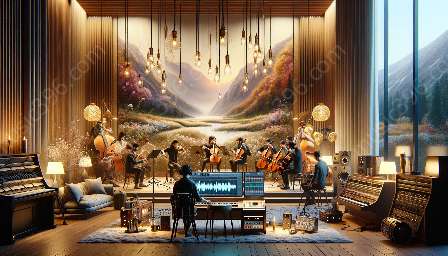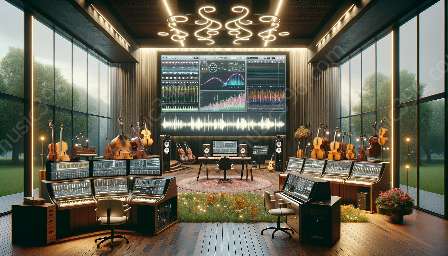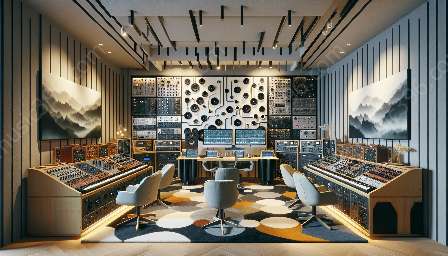The narrative elements in music production encompass a wide range of techniques and strategies that are used to convey a story or evoke a specific emotional response through music. Whether it's through the lyrics, instrumentation, or production choices, music has the power to transport the listener to a different time or place, or to convey a particular mood or narrative arc. This topic cluster explores the intersection of narrative elements in music production, the analysis of music production techniques, and music analysis.
Understanding Narrative Elements in Music Production
Music production is a multifaceted process that involves a combination of technical skills, artistic creativity, and a deep understanding of narrative elements. The narrative elements in music production can be broken down into several key components, including:
- Lyrics: The words of a song can form the basis of the narrative and set the tone for the entire composition. The emotions, stories, and messages conveyed through the lyrics play a crucial role in shaping the overall narrative of a song.
- Instrumentation: The choice of instruments, melodies, and harmonies can greatly influence the narrative arc of a piece of music. Whether it's through the use of a powerful crescendo, a delicate piano motif, or a haunting guitar riff, instrumentation can convey a wide range of emotions and narrative nuances.
- Production Choices: The technical aspects of music production, such as sound engineering, mixing, and mastering, play a vital role in enhancing the narrative elements of a composition. The use of effects, spatialization, and sonic textures can create a rich and immersive listening experience that complements the narrative of the music.
Analysis of Music Production Techniques
When analyzing the narrative elements in music production, it's essential to delve into the specific techniques used to convey a particular narrative or emotional impact. This analysis can encompass a variety of areas, including:
- Arrangement: The structuring of a song, including the placement of verses, choruses, bridges, and instrumental breaks, can significantly impact the narrative flow of the music.
- Sound Design: The manipulation and creation of sound through synthesis, sampling, and processing are crucial in shaping the sonic palette and conveying specific moods or settings within a composition.
- Dynamic Range and Timbre: The use of varying dynamic levels and tonal qualities can be employed to create tension, release, and other narrative elements within the music.
- Rhythmic Patterns: The rhythmic motifs and patterns used in a composition can drive the narrative forward, evoke specific emotions, and create compelling musical hooks.
Exploring Music Analysis
Music analysis aims to deconstruct and understand the underlying principles and creative choices that contribute to the overall narrative and impact of a composition. This process involves:
- Formal Analysis: Identifying the structural elements, such as verses, choruses, and instrumental sections, and understanding how they contribute to the narrative flow of the music.
- Contextual Analysis: Considering the historical, cultural, and social contexts in which a piece of music was created, as well as the intended audience, to grasp the narrative elements from a broader perspective.
- Emotional Analysis: Exploring the emotional impact and evocative qualities of the music, and understanding how the narrative elements contribute to the listener's experience.
Conclusion
Narrative elements in music production play a pivotal role in shaping the way music communicates stories, emotions, and experiences. By analyzing the techniques and creative choices used in music production, as well as delving into music analysis, we can gain a deeper understanding and appreciation of the narrative elements present in music. Whether it's through the intricate interplay of lyrics and instrumentation, the technical nuances of production, or the broader contextual and emotional significance of music, the narrative elements in music production are integral to the art of music creation.

































